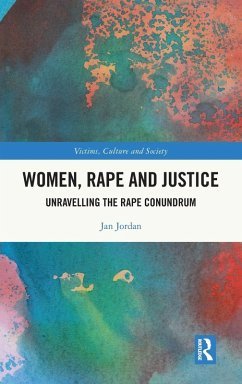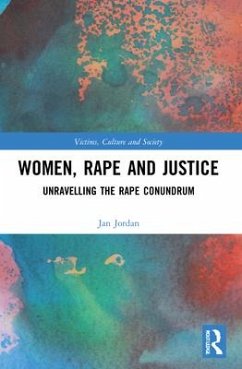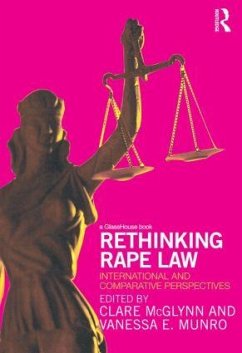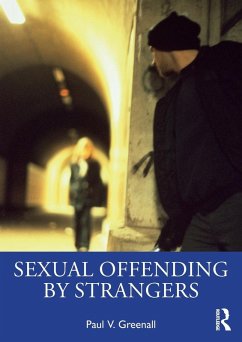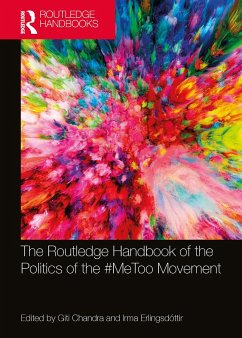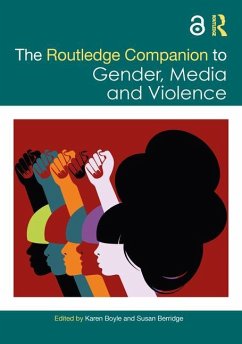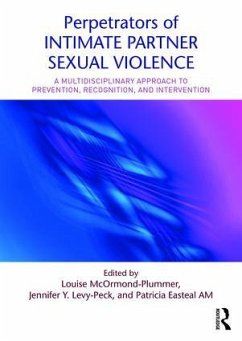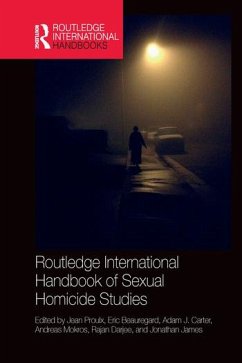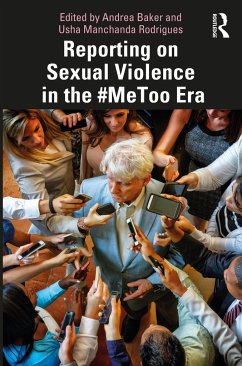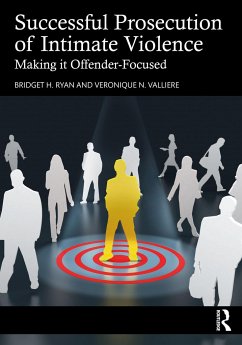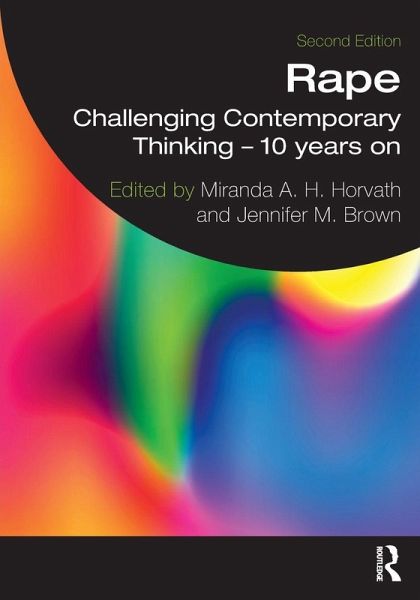
Rape
Challenging Contemporary Thinking - 10 Years On
Herausgegeben: Horvath, Miranda A. H.; Brown, Jennifer M.
Versandkostenfrei!
Versandfertig in 6-10 Tagen
41,99 €
inkl. MwSt.

PAYBACK Punkte
21 °P sammeln!
Rape: Challenging Contemporary Thinking - 10 Years On takes stock of current thinking and research about rape and the way it is handled in practice within the criminal justice system, as well as challenging some of the widely held but inaccurate beliefs about rape.The second edition of Rape: Challenging Contemporary Thinking - 10 Years On is not a traditional new edition, although it does provide updated versions of substantive issues covered in the first edition. Bringing the book to the cutting edge, it incorporates both old and new contexts where sexual exploitation takes place, identifying...
Rape: Challenging Contemporary Thinking - 10 Years On takes stock of current thinking and research about rape and the way it is handled in practice within the criminal justice system, as well as challenging some of the widely held but inaccurate beliefs about rape.
The second edition of Rape: Challenging Contemporary Thinking - 10 Years On is not a traditional new edition, although it does provide updated versions of substantive issues covered in the first edition. Bringing the book to the cutting edge, it incorporates both old and new contexts where sexual exploitation takes place, identifying some knowledge gaps especially when considering the voices of complainants/victims/survivors who are invisible or muted, numerous new areas of research including the implications arising from #MeToo and Black Lives Matter movements, the limitations of our present criminal justice systems, and radical alternatives to closing the justice gap. The new book reflects the global reachof research and thinking about rape, including more international coverage, with material from India, the US, Canada, Australia, and New Zealand as well as the UK. In order to learn from our shared history in this field, two authors reflect on their careers and other authors were encouraged to move away from conventional academic formats to convey their stories. Bringing together leading researchers in the field of psychology, sociology, and law, considering new research, and presenting new data from a strong theoretical and contextual base, the chapters are provocative and engage in innovative thinking, whilst remaining grounded in the available evidence.
This book is essential reading for students of criminology, forensic psychology, sociology, criminal justice, law, media studies, and women's/gender studies. It also aims to inform professionals engaged in the investigation, prosecution of rape, support, and preventative services.
The second edition of Rape: Challenging Contemporary Thinking - 10 Years On is not a traditional new edition, although it does provide updated versions of substantive issues covered in the first edition. Bringing the book to the cutting edge, it incorporates both old and new contexts where sexual exploitation takes place, identifying some knowledge gaps especially when considering the voices of complainants/victims/survivors who are invisible or muted, numerous new areas of research including the implications arising from #MeToo and Black Lives Matter movements, the limitations of our present criminal justice systems, and radical alternatives to closing the justice gap. The new book reflects the global reachof research and thinking about rape, including more international coverage, with material from India, the US, Canada, Australia, and New Zealand as well as the UK. In order to learn from our shared history in this field, two authors reflect on their careers and other authors were encouraged to move away from conventional academic formats to convey their stories. Bringing together leading researchers in the field of psychology, sociology, and law, considering new research, and presenting new data from a strong theoretical and contextual base, the chapters are provocative and engage in innovative thinking, whilst remaining grounded in the available evidence.
This book is essential reading for students of criminology, forensic psychology, sociology, criminal justice, law, media studies, and women's/gender studies. It also aims to inform professionals engaged in the investigation, prosecution of rape, support, and preventative services.





